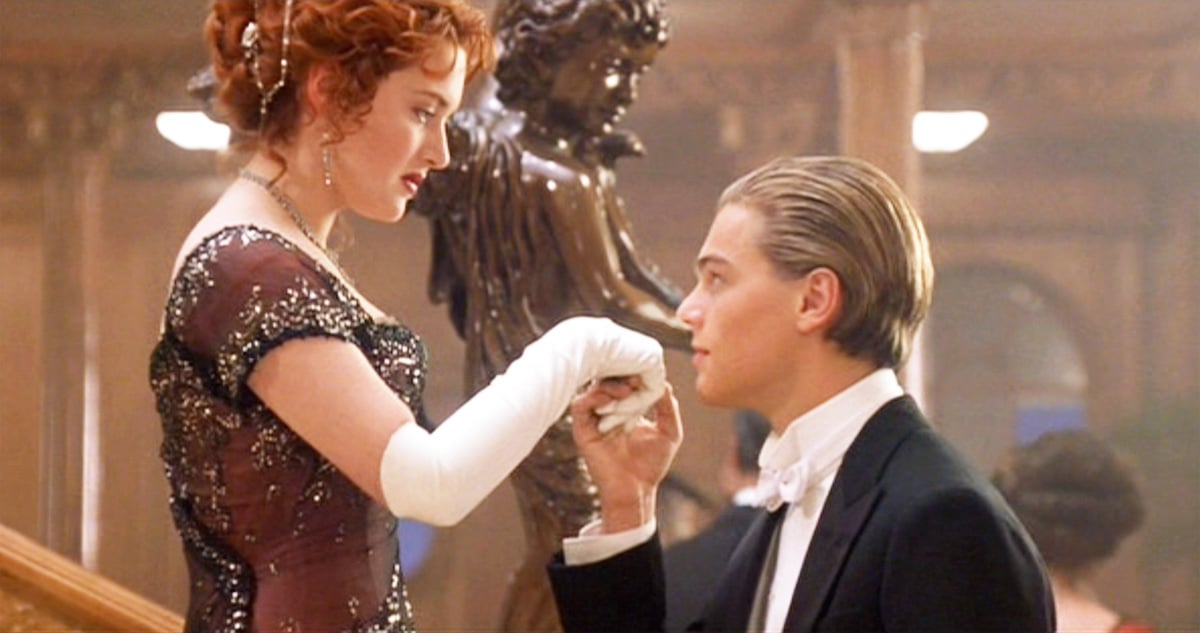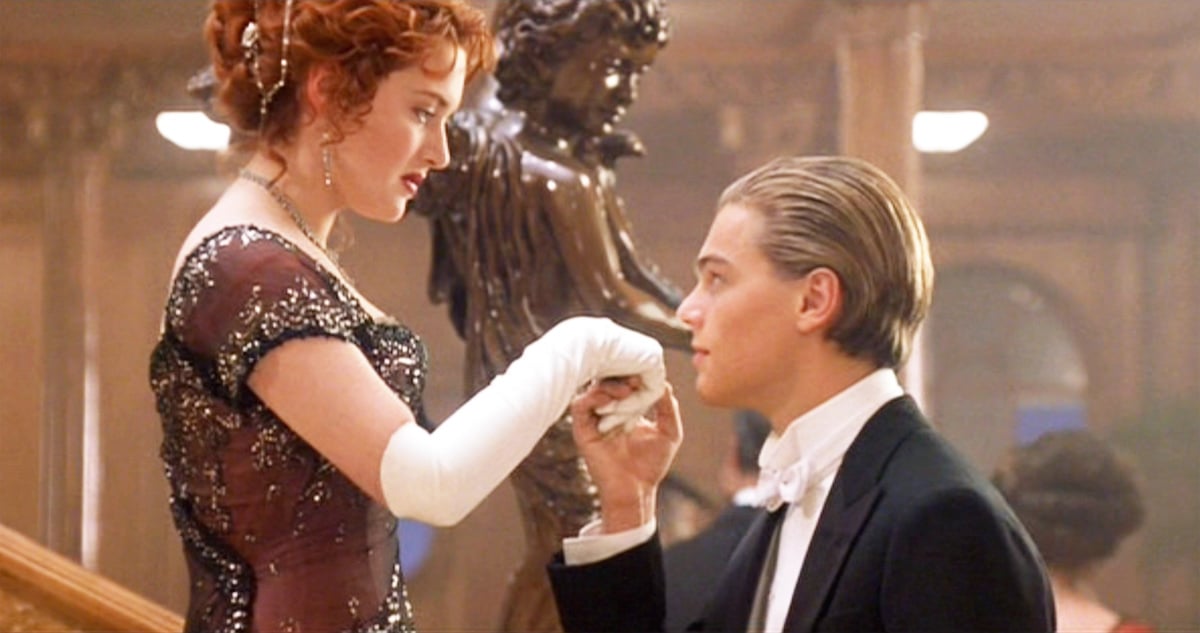
‘Titanic’ Accurately Shows 1912 Era Etiquette, Expert Says
In 1997, the blockbuster movie Titanic captured the hearts of hopeless romantics everywhere. Audiences rooted for the free-spirited artist, Jack Dawson, played by Leonardo DiCaprio, as he wooed socialite, Rose DeWitt Bukater, played by Kate Winslet.
During their whirlwind courtship, Dawson had to navigate the complexities of high society etiquette with nothing more than his dashing self-confidence and a borrowed tuxedo. So just how accurate was the film’s depiction of the social rules observed in 1912? The founder of Beaumont Etiquette, Myka Meier, recently gave her expert opinion to Vanity Fair.
‘Titanic’ is the fictionalized version of a true-life historic event

History notes that on April 15, 1912, the British passenger liner, RMS Titanic, struck an iceberg near Newfoundland and began to sink. Without enough lifeboats for all 2,240 souls on board, more than 1,500 lost their lives. The film Titanic stays true to the event with one major exception.
Director, writer, and producer James Cameron included some real passengers’ stories. But the main characters, Rose and Jack, are completely fictional. Ironically, Cameron eventually found out that a passenger listed as J. Dawson was on the ship after all.
According to IMDb, “This ‘J. Dawson’ was trimmer Joseph Dawson, who had been born September 1888 in Dublin, Ireland. His body was salvaged and buried at Fairview Lawn cemetery in Nova Scotia with many other Titanic victims. Today, his gravestone (#227) is the most widely visited in the cemetery.”
Myka Meier found ‘Titanic’ etiquette to be accurate
In June 2022, Meier spoke with Vanity Fair about the accuracy of manners portrayed in popular films and TV shows including Titanic. Meier’s firm, Beaumont Etiquette, offers consultation and courses in proper American, British, and Continental European manners.
“Titanic is one of my favorite movies when it comes to showing etiquette of the time period,” Meier said. “It takes us back to 1912. The etiquette that you would show others in society, in public, really showed if you were old money, if you were new money, how well educated you were.”
Meier notes that Jack tried to act appropriately while attending a white-tie dinner. (White tie was the most formal style dress code at that time.) He greeted Rose by kissing her hand, a customary sign of respect from a gentleman to a lady. Jack also offered her his arm and escorted her into the dining room.
Then, he took his seat at a table formally set with a myriad of utensils, dishes, and glassware. This “would have been a shock for him,” according to Meier. “Are these all for me?” Jack asked nervously. Molly Brown, played by Kathy Bates, who generously lent him her son’s tuxedo, thankfully sat beside him and offered her assistance — also customary in polite society.
“It’s good etiquette to take care of other people and make sure he’s not embarrassed and that’s exactly what she was doing,” Meier said. In real life, Bates’ character was a survivor of the ill-fated voyage.
The ‘Titanic’ dinner scene featured examples of good and bad etiquette
You may have heard a version of this saying, “The well-bred man is never rude unintentionally.” According to Quote Investigator, as early as 1899, this quip about high society manners circulated in English newspapers before appearing in American publications in 1906.
Its point: If a member of the upper class is rude to you, it’s no accident. During the dinner scene, we get to see this in action. Unlike those with good etiquette who tried to put Jack at ease, others at the table rudely set out to embarrass him.
Rose’s mother wasted no time cheerfully bringing up his third-class lodging. She also expressed disdain for his nomadic lifestyle, which earned her a withering glare from Molly. When Jack said he was lucky to win his ticket, Rose’s fiancé impugned his character by responding that real men make their own luck.
“In the very beginning, he does very well,” Meier said of Jack’s manners. As the dinner progressed he allowed his facade to slip as if giving them what they expected from a man of his class. He scratched his nose indelicately, spoke with his mouth full, and even gave his detractors a taste of their own medicine.
“Just the other night, I was sleeping under a bridge and now here I am, on the grandest ship in the world, having champagne with you fine people,” Jack remarked with a pointed lift of his glass and his eyebrows.


